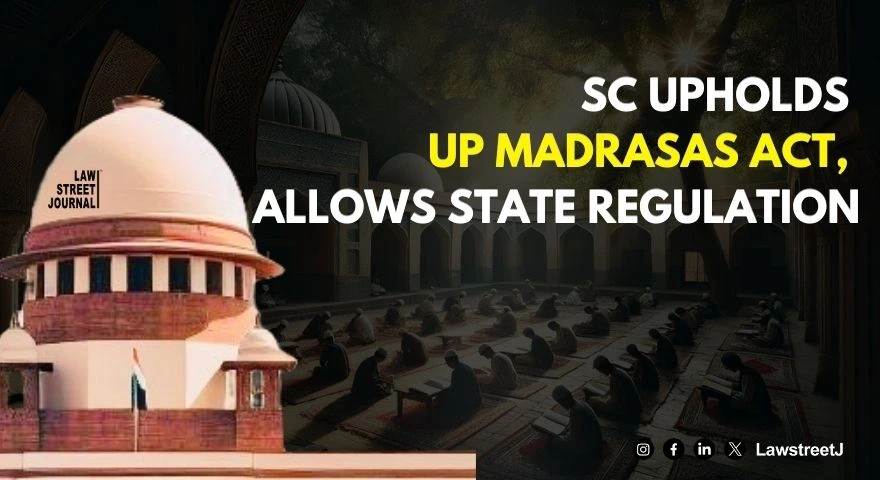NEW DELHI: The Supreme Court on Tuesday upheld the validity of the UP Madrasas Act, 2004, holding the state has got a vital interest in regulating Madrasas to improve standards of education over there.
SC Upholds UP Madrasas Act: Implications for Educational Standards and Minority Rights
A bench of Chief Justice of India D Y Chandrachud and Justices J B Pardiwala and Manoj Misra set aside the Allahabad High Court's judgment of March 22, 2024 decision, which struck down the law, declaring it as unconstitutional and violative of the principle of secularism.
In its judgment on a plea filed by Anjum Kadari and others, the bench, however, held that the Act, so far as it regulated higher education in relation to 'Fazil' and 'Kamil' degrees, was in conflict with the UGC Act and to that extent it was unconstitutional.
Supreme Court’s Ruling on UP Madrasas Act: Balancing Secularism and Regulation in Education
Highlighting the importance of the Act, the bench said it regulated the standards of education in the State of Uttar Pradesh.
"The right of minorities to administer educational institutions is not absolute and the State can regulate the standards of such education," the bench said.
"The provisions are reasonable as they subserve the need of regulation and secure the interests of the minority community as they regulate the standards of education, conduct examinations and confer certificates allowing them to pursue higher education," the bench added.
It said though the Madrasas provide religious instructions, their primary aim was education.
On October 22, 2024, the court had reserved its judgment saying that religious instructions are never an anathema in the country, as it is available not just for the Muslims, but for Hindus, Sikhs, Christians etc and the country ought to be a melting pot of cultures, civilizations, and religions.
"The answer to ghettoisation is to allow people to come to the mainstream and to allow them to come together. Otherwise, what we essentially would be doing is to keep them in silos," the court had said.
The UP government did not file appeal against the High Court's judgment.
It, however, submitted that the High Court should have only struck down the provisions which are violative of the fundamental rights instead of nullifying the entire regulatory framework.
During the hearing, the bench said secularism means to live and let live..The bench and also observed striking down the entire Act would mean that the Madrasas would remain unregulated.















